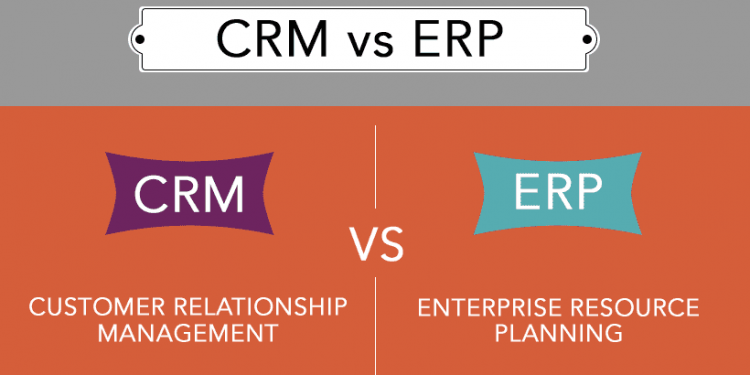Businesses seeking to automate primary business operations have two solutions to consider. The solutions are Enterprise Resource Planning (ERP) software and Customer Relationship Management software (CRM). ERP software enables companies to run successful businesses by connecting financial and operational systems to one central database. On the other hand, CRM helps manage the interaction between customers and the industry. Both software touch on various departments and are sometimes on the same platforms. However, they can be bought separately and installed where necessary. CRM and ERM have some similarities and differences that you must consider before deciding if your company needs both or just one. Find out more here.
The Software Function
One of the critical differences between ERP and CRM is system functions. ERP software can facilitate business operation across many various departments. If you want a system that will function in finances, warehousing, and all other operations, ERP is that system. On the contrary, Customer Relationship Management is a more specifically designed solution. The number of customer-related functions integrated into CRM is more extensive than in ERP. The distinguishing feature between the two here is the scope. From this point of view, if you want to choose one, it would be best to consider the company’s needs.
The Approach to the Business Processes
Both ERM and CRM systems aim at improving business efficiency though they have different approaches to business processes. ERP software focuses on profit maximization by reducing the cost of production, hence ensuring that a business runs smoothly and efficiently. CRM best facilitates higher sales volume and improves business and customer interaction. While ERP ensures that every department understands the workflow from the other department, CRM ensures that every customer is contented and loyal as every company value optimizing customer relations. Executives use ERP to evaluate the real-time performance of every department in the enterprise. Keen monitoring is vital, especially in growing companies and those planning to scale.
The System Usability
When it comes to user complexity, Enterprise resource planning is quite a complex system. It is sensible to assume that it is for large companies that focus on continuous growth and increased profits. Large scale enterprises have no question of whether to go for ERP or CRM as Enterprise resource planning will have the first advantage for its multipurpose functions. Another added benefit is that the resource planner can manage different branches. On the other hand, customer relationship management is more accessible and simpler to use. It applies to small-scale companies whose priority is sales maximization. It is one easy and effective tool that can transform a small business into a large and more developed business empire. If your company aims to sell products and services, then CRM is the option for you. Consider the size and goal of your business before settling for any software.
The Differing Features
The striking difference between these two essential systems is their features and functions. CRM tools deal with customers and front-office matters to increase profits. In contrast, ERP deals with everything within the company’s back office, including fulfillment centers and factories. Here are some exceptional features of CRM;
- Spearheading Marketing Campaigns
The system is essential in simplifying marketing strategies. With CRM, you can plan posts and publish them at the right time and control marketing campaigns across various platforms such as social media. These campaigns target an audience based the customer data.
- Customer Helpdesk Support
The customer relationship management system has tools for customer help and support. For example, it unites the call center, emails, messages, and live chats and creates tracking tickets. In addition, it can set up a self-service helpdesk for essential customer support such as FAQs.
- Automation and Workflows
The best CRM systems use machine learning. First, you can train the machine to perform simple repetitive tasks like data entry and cleaning. Then, it sends out automated replies and reminders via texts and emails.
- Analytics and Reporting
When operating sales, marketing, and customer support platforms, CRM collects a lot of helpful information. You can learn which ads received the closest attention in marketing. Analytics show individual representative or team performance, and the compiled data help in updating reports in real-time.
ERM tools and features perform the tasks that CRM systems cannot achieve. Check out the outstanding features.
- The Supply Chain Management
Manufacturing industries cannot function effectively without ERP. It handles materials procurement, inventory management and assists in organizing warehouses. In addition, some tools can keep track of suppliers and other parties in the supply chain.
- Do Order Tracking
When CRM gets a sale, it is the work of ERP to push the deal through. It also helps customers and companies keep track of delivery schedules.
When deciding on the debate on which system between CRM and ERP to choose for your business, you must consider several factors. The factors include; the company’s size, business needs, and the number of branches. Upgrade to digital management today for effective running and productivity of your business. It is also important to learn more pros and cons of both systems to be in a position to make a sound decision.





